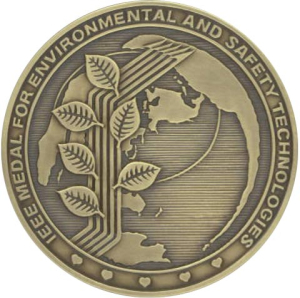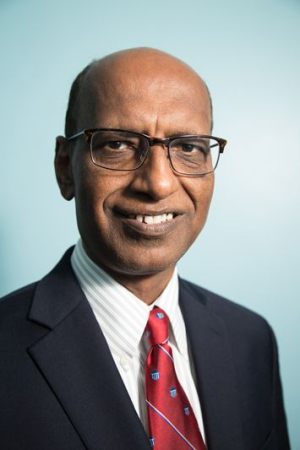A well-rounded career with achievements in industry and academia has led to distinction for University of Houston professor Kaushik “Raja” Rajashekara, as the Institute of Electrical and Electronics Engineers awarded him the 2021 IEEE Medal for Environmental and Safety Technologies.
Sponsored by Toyota, the award is for outstanding accomplishments in the application of technologies that improve the environment and/or public safety. Rajashekara, a Distinguished Professor in the Electrical and Computer Engineering Department, was chosen at the November meeting of the IEEE Board of Directors. Criteria for the award includes public benefits of the contributor; degree in improvement in important performance metrics; innovative design, development, or application engineering; favorable influence on the contribution on technical professions; and quality of nomination.
Rajashekara was notified by email on Nov. 23 that he won the award.
“I felt very happy that I was selected for this award,” he said. “This is an important award for me because I worked for more than 30 years on contributions to Transportation Electrification to increase the energy efficiency and improve the environment.”
Rajashekara was the subject of a July 2017 profile published on the Cullen College of Engineering's website, and he also contributed a memoir article, “Learning Never Stops,” for the 2016 September/October edition of the IEEE Industry Applications Magazine. In both, he detailed his educational and life journey.
“I grew up in a small village in India, studying under kerosene lamps and binding notebooks from spare pages,” he wrote in the memoir piece. “I never imagined that one day I would work for prestigious corporations and be mentored by inspiring engineers and leaders. After completing my undergraduate degree in 1974, I would have worked at any engineering company, but I ended up at Cutler-Hammer and then Debikay Electronics, entering the field of power electronics. I worked on thyristor drives for paper and rolling mills and learned that a solid foundation in the basic elements of engineering is requisite for real world practical systems.”
Rajashekara joined the UH faculty in September 2016, after holding a similar position at the University of Texas at Dallas since August 2012. Before that, he worked as a chief technologist, chief scientist and senior project engineer for some of the world's biggest companies –Rolls-Royce, Delphi, and General Motors – for more than 25 years. He was part of the team that developed General Motors' EV1, the first mass produced electric car from a major automaker.
“I always knew I wanted to get back to Academia,” he said. “Before joining the industry, I was a faculty member for seven years at the Indian Institute of Science in Bangalore. When I was in industry, I continued to teach and worked on the research projects with several universities in the U.S. and U.K.”
In the 2017 article, Rajashekara identified his focus as the future. It shows in his current research, which contains overlapping and multi-discipline areas, and the tantalizing idea of flying cars.
“We continue to focus on the area of electric vehicles, with a particular emphasis on electric vehicle charging, and in the Aerospace area my interest is on electric/hybrid vertical take-off and landing vehicles and flying cars,” he said. “Our team at UH is also working on Subsea Electric power systems to reduce the pollution from the extraction of oil and gas in subsea. Another area of our focus is grid integration of energy storage systems and renewable energy sources.”

